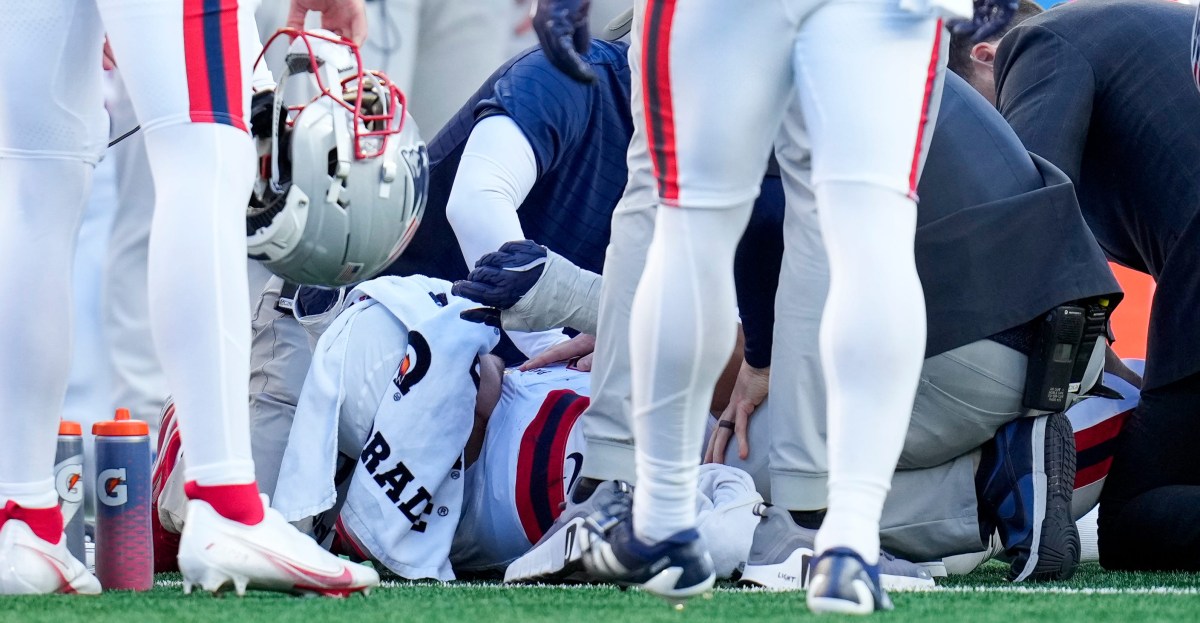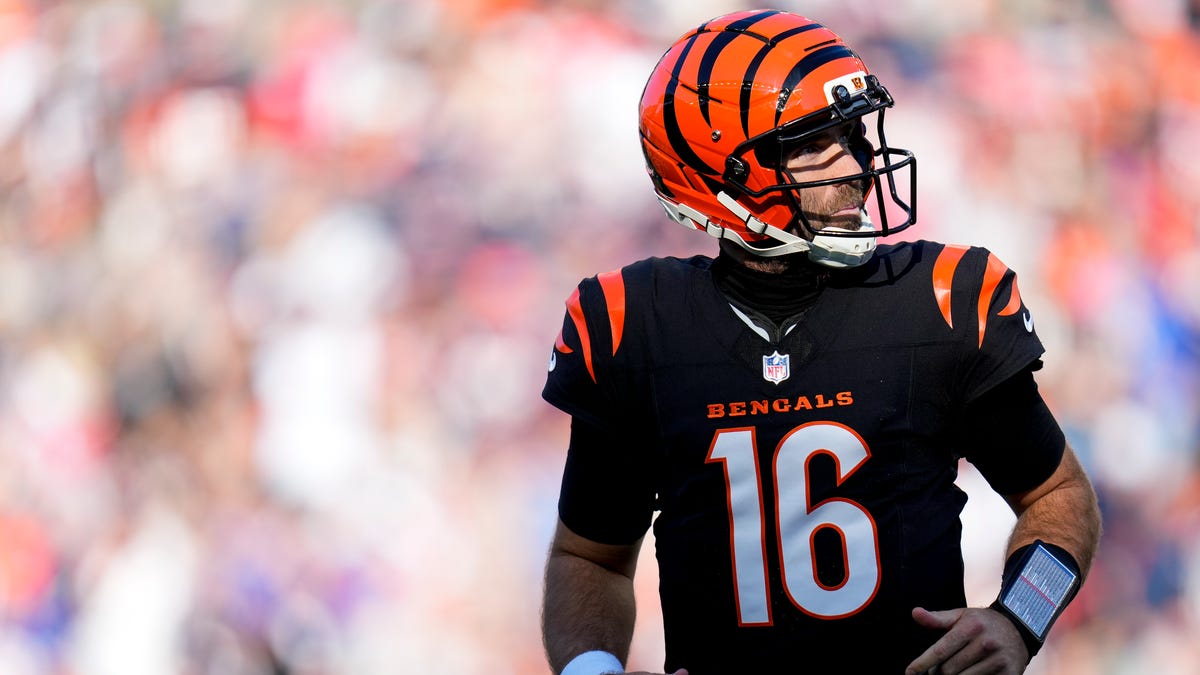The Anatomy of a Fraudulent Winning Streak: 8 Hard Truths About Patriots vs. Bengals
So, the New England Patriots are the class of the AFC. Because they managed to squeak by a Bengals team mailing it in for the season, extending a winning streak to nine games. The headlines write themselves. The narrative is set. And it’s all a complete and utter fabrication built on the flimsiest of foundations.
Let’s not drink the Kool-Aid. Let’s perform an autopsy. What follows is a logical deconstruction of this Week 12 farce, a game that tells us far more about the inherent mediocrity of the league than it does about the supposed dominance of New England.
1. This “Winning Streak” is a Statistical Illusion
And we begin with the central pillar of this entire myth: the nine-game winning streak. On paper, it’s impressive. In reality, it’s a masterclass in scheduling luck and capitalizing on opponents’ self-destruction. Before this Bengals game, let’s just hypothetically reconstruct the path. It was likely littered with rookie quarterbacks making their first start, teams decimated by injury, and coaching staffs in turmoil. A win against a 3-7 Jets team with an offensive line made of Swiss cheese doesn’t make you a contender. Beating a Colts squad in the middle of a quarterback crisis is not a benchmark for greatness. It’s called taking care of business against the league’s bottom-feeders.
This streak is not a testament to dominance. It’s a testament to a soft schedule. A mirage in the desert. And this Bengals team, with a journeyman quarterback and a defense that’s already planning its vacation, was just the next logical victim on a schedule designed for success. It proves nothing.
2. Deconstructing the “Comeback”: A Symphony of Incompetence
But the Patriots rallied from a 10-point deficit! What grit! What resilience! No. Let’s call it what it was: the Bengals remembered they were the Bengals. Cincinnati going up 10-0 was the anomaly; their subsequent collapse was the reversion to the mean. A 10-point lead is not an insurmountable mountain in the modern NFL, especially against a team with nothing to play for.
Because the moment the pressure mounted, Cincinnati folded like a cheap suit. A bad snap. A dropped pass on a crucial third down. A bone-headed penalty that extends a Patriots drive. This wasn’t a comeback engineered by the strategic genius of Mike Vrabel; it was a slow-motion surrender gifted by a team that lacks the discipline, talent, and leadership to close out a game. The Patriots didn’t take this victory. The Bengals handed it to them on a silver platter.
3. Joe Flacco: The Fallacy of the “Winner” in a Lost Season
And now we have the inevitable human-interest story, the lipstick on this pig of a game: “Joe Flacco is a winner amid a lost season.” What does that even mean? It’s a meaningless platitude designed to make reporters feel good about writing a story that isn’t just about another loss. A winner doesn’t pilot an offense to 20 points against a good-not-great defense and then watch it evaporate. A winner finds a way.
Flacco is a highly-paid professional doing his job at a competent, if uninspired, level. His presence is a symptom of Cincinnati’s organizational failure, not a beacon of hope. The fact that the media has to contort itself into pretzels to find a ‘winner’ on a losing team tells you everything you need to know about the state of that franchise. He didn’t elevate them. He managed their decline. There is a fundamental difference.
4. Mike Vrabel’s Patriots Are Not the Belichick Dynasty
Because every time the Patriots win, the ghost of Belichick looms large. But let’s be clinical. This team is a pale imitation. Where the Belichick-era Patriots were defined by ruthless efficiency and situational mastery, Vrabel’s team is defined by… well, just winning sloppy games. This wasn’t a strategic masterclass. It was a war of attrition where the slightly less incompetent team prevailed. They allowed a Flacco-led offense to build a 10-point lead. They committed their own series of unforced errors. They looked, for long stretches, utterly beatable.
This isn’t the Death Star. It’s a pretty effective TIE Fighter. It can win some dogfights, especially against freighters and busted-up X-wings, but it’s going to get obliterated by the first real Rebel Alliance fleet it encounters in January. Vrabel is a good coach. He is not a legend, and this team is not a dynasty in the making. They are simply the tallest dwarf in the room.
5. The Anatomy of a “Sloppy Game”: Why Neither Team is a Real Threat
The phrase “it wasn’t always pretty” is the great sanitizer of bad football. This game wasn’t just ‘not pretty,’ it was a showcase of fundamental flaws for both squads. Dropped passes. Missed tackles. Questionable play-calling on both sides of the ball. This is the kind of game that gets a true Super Bowl contender, like the Chiefs or the 49ers of years past, absolutely eviscerated in the film room on Monday.
For the Patriots, it’s a warning sign flashing in bright neon. You cannot play this brand of football against the true AFC elite and survive. For the Bengals, it’s the confirmation of what we already knew: this season is a write-off, a complete teardown waiting to happen. So when we call the game ‘sloppy,’ we are merely putting a polite label on what was, in essence, a preview of two postseason flameouts—one in the Wild Card round, and the other from the couch.
6. The Pre-Baked Injury Excuse
And then there’s the foreshadowing, the little seed planted in the post-game analysis: “some of the injuries they sustained might come back to hurt them later.” This is the pre-writing of the excuse for the inevitable playoff failure. Every team in the NFL has injuries by Week 12. It is a fundamental constant of the sport. By highlighting it now, the narrative is being shaped to forgive the future loss.
When the Patriots lose to a genuinely superior team in the Divisional Round, the story won’t be that they were tactically out-coached or physically out-matched. It will be, “Well, we saw the seeds of this back in that Bengals game. The injuries just caught up to them.” It’s a transparent attempt to protect the fraudulent premise that this is a championship-caliber team derailed by misfortune, rather than a flawed team whose luck simply ran out.
7. Cincinnati’s Lost Season is a Blueprint of Mismanagement
This isn’t just a lost season for the Bengals; it’s the predictable result of years of questionable personnel decisions and a refusal to commit to a true rebuild. Relying on a 40-year-old Joe Flacco is not a strategy; it’s a desperation play. It’s an admission that the front office has utterly failed at the single most important task in modern sports: securing a franchise quarterback for the future. This loss isn’t an event. It’s a symptom of a deep-seated organizational disease. And no amount of fawning over Flacco’s ‘winning’ attitude can mask that diagnosis.
8. The Inescapable Conclusion: This Game Meant Nothing
So what did we learn from Patriots 26, Bengals 20? We learned that a good, but not great, team can beat a bad, unmotivated team. We learned that a nine-game winning streak can be built on a foundation of sand. And we learned that the narratives spun in the immediate aftermath of a game are often the least reliable indicators of future success. The Patriots are AFC leaders, yes. But they are vulnerable, flawed, and riding a wave of good fortune that is statistically bound to crash. This game wasn’t a statement of intent. It was just another week of noise in a league drowning in mediocrity.


